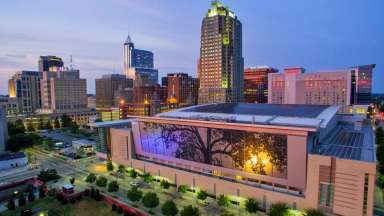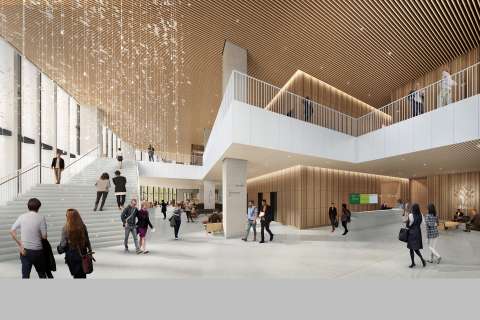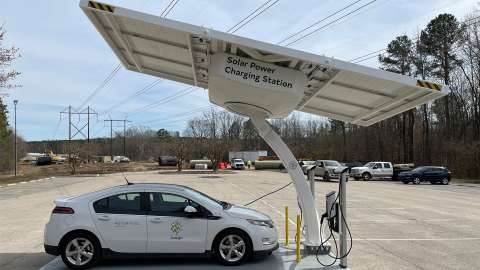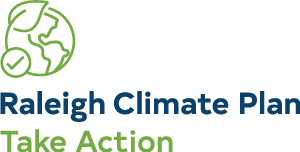Jump To:
Understanding and managing the energy we use to power our buildings is an important part of Raleigh’s Community Climate Action Plan (CCAP). In fact, buildings and energy account for nearly half of community greenhouse gas emissions in the city. We can improve the impacts of our energy use on climate change by using less energy (conserving energy), reducing the amount of energy it takes to do what we need to do (using energy more efficiently), or reducing the amount of carbon released from the energy we use (using renewable energy).
The City of Raleigh has several energy initiatives that cover all of these areas: energy conservation, energy efficiency, and renewable energy. We are committed to improving how we use energy and using new energy technologies to reduce our greenhouse gas emissions and save money for our residents.
Energy Efficiency
The City applies high standards for energy efficiency for all new municipal buildings and building upgrades. We also test and apply new technologies with the potential to provide energy savings while maintaining the same level of service and safety for our residents. Learn about energy efficiency in Raleigh in more depth here.
Leadership in Energy and Environmental Design (LEED) Buildings
Since 2007, the City of Raleigh has had a policy that new municipal buildings over 10,000 square feet be certified at least at LEED Silver levels. LEED is an internationally recognized certification system for energy efficiency and environmental design. The City will also seek LEED Gold or Platinum Certifications where practical and when funding is available.
We are also prioritizing energy efficiency improvements to existing City buildings. Construction and additions of less than 10,000 square feet will not necessarily seek LEED Certification but will be designed to those same standards for energy efficiency.
For more information about Energy Efficiency standards, check out our 2024 CCAP Implementation Report. Our CCAP Data Dashboard also includes information on Raleigh LEED facilities here.
Raleigh also has 114 Energy Star Buildings, totaling over 15 million square feet throughout the city. Energy Star is a U.S. Environmental Protection Agency program that certifies buildings meeting strict energy and greenhouse gas emissions standards.
An often-overlooked element of energy efficiency involves allowing inherently energy-efficient housing types. Apartments and townhouses use much less energy than detached houses, because they share walls and/or ceilings and because they are smaller on average. That matters, because the homes we live in make up the majority of building space in the city. That means making townhouses and apartments legal to build in more places is a major energy efficiency strategy for Raleigh.
Solar Energy
The City of Raleigh has a long history of supporting solar energy, installing at a number of facilities with the total capacity of these City-owned systems at 1.9 Megawatts (MW). The City of Raleigh LEED Gold Certified Law Enforcement Training Center continues to expand the City’s renewable energy portfolio by including geothermal technology for heating and cooling.
In addition, Raleigh achieved the SolSmart Silver designation in 2022. The SolSmart program certifies cities that address local community barriers to solar energy, develop innovative solutions to promote solar installation, and educate and engage community members on the benefits of solar energy.
In 2022, Raleigh City Council approved $2 million in American Rescue Plan (ARPA) funds to be used for the evaluation and installation of various solar projects across the City. Staff is evaluating and implementing these projects over the course of the next few years.
The City of Raleigh also recently completed the first phase of its Solarize the Triangle campaign. Solarize the Triangle is a community-based group-purchasing program for solar energy, and other clean-energy technologies. This initiative is designed to serve residents, and help Triangle homeowners, businesses and nonprofits within 11 Triangle locales to become more resilient, reduce energy expenses, and save on the cost of renewable-energy systems. Solarize campaigns are driven by community group purchasing by obtaining volume discounts on materials and installation services. The more participants who enroll, the greater the savings for all!



